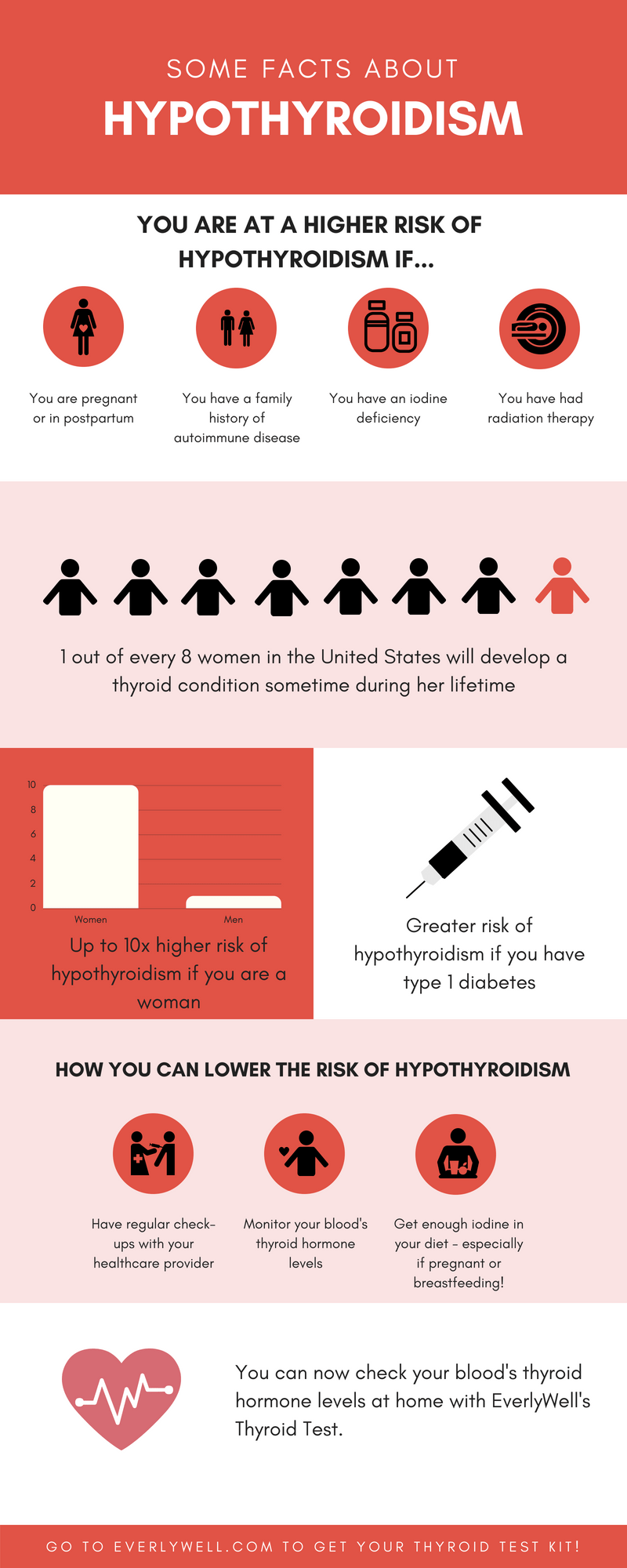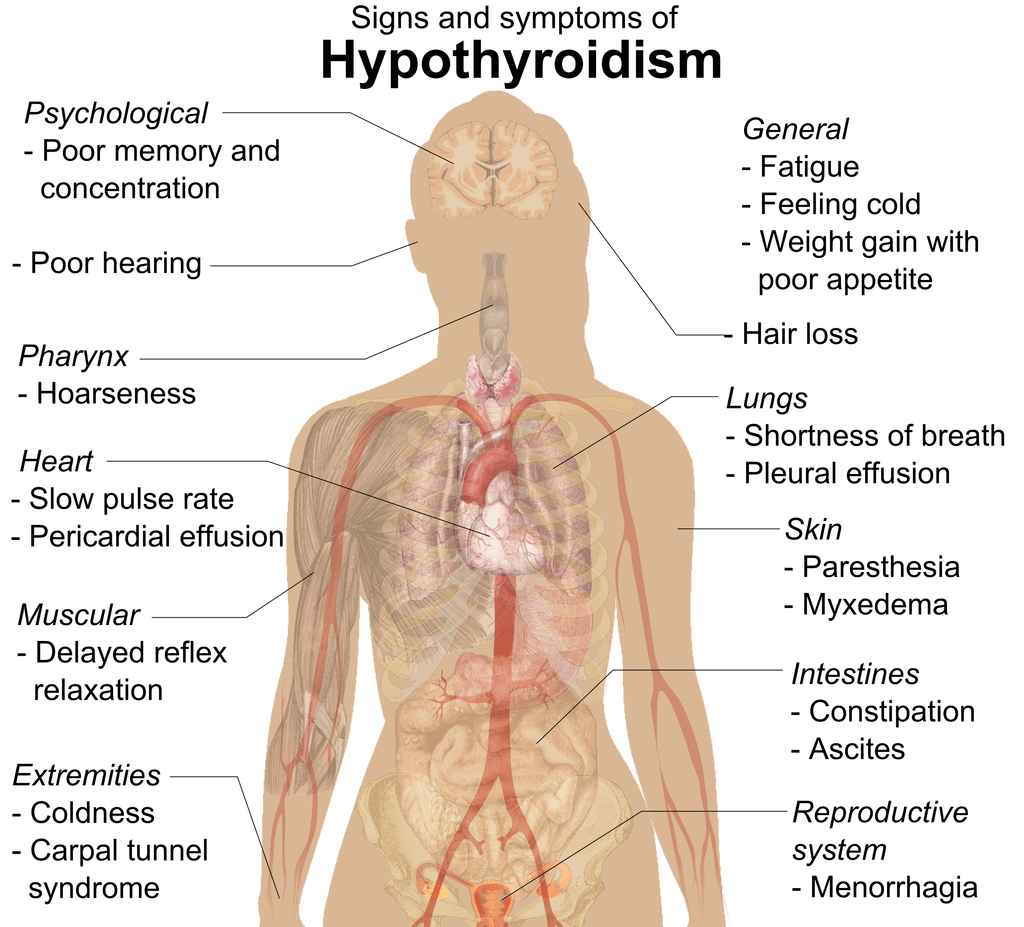
Risk Factors For Hypothyroidism In Women
Much information on hypothyroidism has been uncovered over the past decades – including the astonishing fact that women are up to 10x more likely to get this disease than men are.
Why is hypothyroidism more common in women? To unravel the answer to that question, let’s look at the main cause of hypothyroidism. In the United States, hypothyroidism is most often caused by an autoimmune disorder. Autoimmune disorders occur when the individual’s own immune system wrongly identifies a part of the body – such as the thyroid gland – as a threat. The immune system then attacks that body part with antibodies in a heroic effort to eliminate the “danger” – not unlike Don Quixote’s valiant battle with the windmills.

Compared to men, women are at a greater risk of developing autoimmune disorders: women make up close to 8 out of every 10 people with an autoimmune disease. The reasons behind this aren’t totally clear, but it’s believed that it’s partially because of sex differences in the immune response. Women, for example, tend to have a stronger, more robust immune system. (So, women reading this, take note: your immune system may be more effective at warding off infectious diseases than the immune systems of most guys.)
But what if an already-strong immune system goes rogue – and fights against the very body it belongs to? That’s essentially what happens when a woman develops an autoimmune disease like hypothyroidism – her powerful immune system malfunctions by mistaking a part of the body as a threat, then launches a very effective, very destructive attack that results in disease.
So if you’re a woman experiencing some of the symptoms of hypothyroidism – like chronic fatigue, weight gain, depression, dry skin, or thinning hair, for example – take EverlyWell’s at home Thyroid Test to see how well your thyroid is doing.
HYPOTHYROIDISM RISK FACTORS

The chance of developing hypothyroidism is higher for some women, based on a number of risk factors. Age, for example, is one risk factor (hypothyroidism becomes more likely as you get older). There’s also an elevated risk of hypothyroidism if you are pregnant or in postpartum – as well as during menopause.
POSTPARTUM THYROIDITIS

Pregnancy involves dramatic changes in both thyroid hormone levels and the immune system, which can lead to postpartum thyroiditis – an autoimmune thyroid disorder experienced by some women within the first 6 months after childbirth. Hypothyroidism is the most common effect of postpartum thyroiditis, though hyperthyroidism – where the thyroid produces too much thyroid hormones – can also occur.
Most of the time, postpartum thyroiditis fades away (generally within about a year after delivery). However, in a percentage of women, postpartum thyroiditis turns into chronic, persistent hypothyroidism.
Note that if someone in your family has had an autoimmune thyroid disease, then you’re at a higher risk of postpartum thyroiditis – so if that’s the case, consider monitoring your thyroid health carefully after you’ve delivered a child.
SUBCLINICAL HYPOTHYROIDISM
Subclinical hypothyroidism refers to mild thyroid dysfunction, and women are at a higher risk of subclinical hypothyroidism than men are. However, treatment may not be required (given its mild nature, and because it can sometimes go away on its own), although more follow-ups with a healthcare provider and regular monitoring of thyroid health is a good idea. That’s because subclinical hypothyroidism can turn into full-blown hypothyroidism. Also, subclinical hypothyroidism elevates the risk of miscarriage during pregnancy.
Individuals with subclinical hypothyroidism have normal levels of thyroid hormones, but slightly higher-than-normal levels of thyroid-stimulating hormone (TSH). Only a small fraction of people with subclinical hypothyroidism develop complete hypothyroidism; however, if you do have subclinical hypothyroidism, you are almost twice as likely to develop full-fledged hypothyroidism if TPO antibodies are detected in your blood than if they are absent.
Thus, if you want to check your thyroid health, use a thyroid test that examines several indicators of your thyroid’s well-being. EverlyWell’s Thyroid Test, for example, analyzes your levels of thyroid hormones (free T3 and free T4), TSH, and TPO antibodies – giving you multiple pieces of information that help paint a more complete picture of your health.
DETECTING HYPOTHYROIDISM

It’s not always easy to identify hypothyroidism because many of its symptoms are similar to the symptoms of other diseases. For example, feeling depressed – and having unusually dry skin – are symptoms of both hypothyroidism and hyponatremia (which results from low sodium levels in the blood). So compared to a physical assessment of symptoms, evaluation of thyroid hormone and TSH levels is considered a more effective way to identify hypothyroidism.
(You can now assess these hormone levels in your own home with EverlyWell’s Thyroid Test.)
Conclusion
Hypothyroidism occurs far more frequently in women than in men, and other factors – such as age and pregnancy – also add to the likelihood of hypothyroidism. What’s more, women may also experience postpartum thyroiditis – which often entails hypothyroidism – as well as subclinical hypothyroidism. So if you are at an increased risk of hypothyroidism, check your thyroid’s well-being with EverlyWell’s Thyroid Test.